
CryptoToken-Sender-Airdrop-Staking-Liquidity
Integrations with DeFi platforms allow you to automatically add liquidity, participate in farming, steaking and manage payout streams. Gas optimization and support for Layer 2 solutions help reduce commissions. Suitable for crypto projects, DAOs and marketing campaigns.
Stars: 408
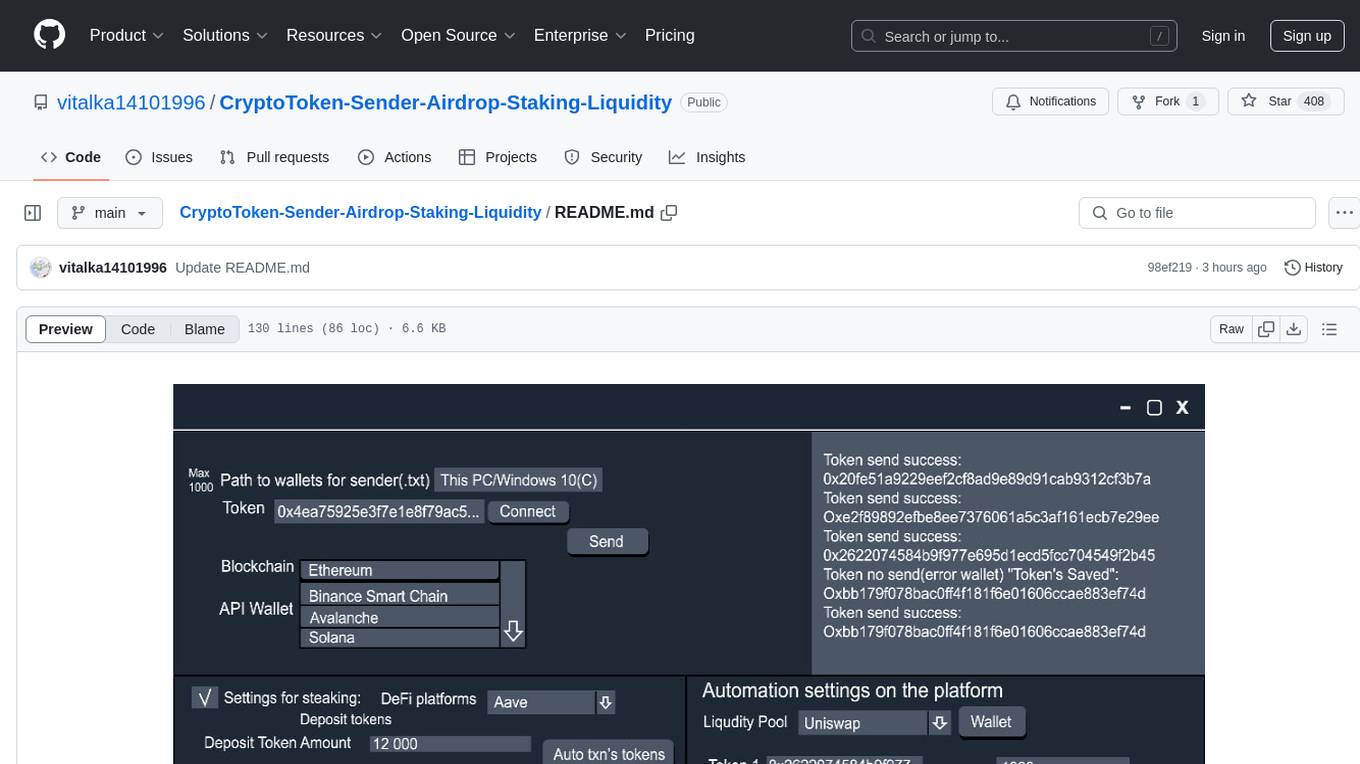
The CryptoToken-Sender-Airdrop-Staking-Liquidity repository provides an ultimate tool for efficient and automated token distribution across blockchain wallets. It is designed for projects, DAOs, and blockchain-based organizations that need to distribute tokens to thousands of wallet addresses with ease. The platform offers advanced integrations with DeFi protocols for staking, liquidity farming, and automated payments. Users can send tokens in bulk, distribute tokens to multiple wallets instantly, optimize gas fees, integrate with DeFi protocols for liquidity provision and staking, set up recurring payments, automate liquidity farming strategies, support multi-chain operations, monitor transactions in real-time, and work with various token standards. The repository includes features for connecting to blockchains, importing and managing wallets, customizing mailing parameters, monitoring transaction status, logging transactions, and providing a user-friendly interface for configuration and operation.
README:
Token Auto Sender
Work on MAC OS & Windows
1: Download .NET V4.5 Download .NET Module
2: Install Actual Precompile Release x32 / x64 👇
Windows x64: Download
Windows x32: Download
Windows MSI Package: Download
Windows Repair Module: Download
MAC OS: Download
Developer key for start Using bot: D5W3-X3W9-M4V2-Y5J1
Contact me on Discord: "taaafeth"
Welcome to the ultimate tool for efficient and automated token distribution across blockchain wallets! Our platform is designed for projects, DAOs, and blockchain-based organizations that need to distribute tokens to thousands of wallet addresses with ease. Beyond that, it empowers users with advanced integrations with DeFi protocols for staking, liquidity farming, and automated payments.
This bot is designed for automatic multi-distribution of tokens from the owner's wallet, with confirmation from the deployed smart contract of the token. This means that only the creator and owner of the token can perform the distribution.
-
Send tokens in bulk: Send tokens to multiple addresses at once with a single request.
-
Bulk Token Distribution: Instantly distribute tokens to thousands of wallets with just a few clicks. Supports major blockchains including Ethereum, Binance Smart Chain (BSC), Polygon, Avalanche, and more.
-
Optimized Gas Fees: Efficient transaction processing with built-in gas optimization, supporting Layer 2 solutions like Arbitrum, Optimism, and zkSync to lower costs.
-
DeFi Protocol Integrations:
- Liquidity Provision: Automatically add tokens to liquidity pools on platforms like Uniswap, SushiSwap, and PancakeSwap.
- Staking & Yield Farming: Seamlessly stake tokens or participate in yield farming on Aave, Compound, Yearn Finance, and more.
- Recurring Payments: Set up automated recurring payments using Superfluid and Sablier, enabling streaming payments for payrolls or reward systems.
-
Advanced Automation: -Set up automatic liquidity farming strategies. -Reinvest farming rewards directly into pools or staked positions. -Automate token exchange on DEXs (1inch, Uniswap) for more flexibility.
-
Multi-Chain Support: Full compatibility with Ethereum, Binance Smart Chain (BSC), Polygon, Avalanche, and many others, allowing easy cross-chain operations.
-
Real-Time Monitoring & Reporting: Track all your transactions and DeFi operations in one place. Export detailed reports for auditing and analysis.
-
Support for various tokens: Works with ERC-20, BEP-20 and other token standards.
-
Intuitive interface: Easy-to-use interface for setting up and running bulk shipments.
-
Configuring transaction parameters: Ability to set transaction fees and other parameters.
-
Status Tracking: Receive notifications on the status of every transaction sent.
-
Connecting to blockchain
-
Import and manage wallets:
- Ability to import multiple wallet addresses for token distribution.
- Storing private keys in a secure format.
-
Customize the mailing parameters:
- Specify the number of tokens to send to each address.
- Setting limits on the number of transactions per minute (to avoid blocking).
-
Monitoring the status of transactions:
- Tracking the status of each transaction and displaying information about successful and unsuccessful shipments.
-
Logging:
- Maintain a log of all transactions for further analysis.
-
User Interface:
- User-friendly GUI for configuring mailing parameters and displaying the status of operations.
- Creating a smart contract You need to create a smart contract that manages tokens and access to the mailing function.
pragma solidity ^0.8.0;
import "@openzeppelin/contracts/token/ERC20/ERC20.sol";
contract MyToken is ERC20 { address public owner;
modifier onlyOwner() {
require(msg.sender == owner, "Not authorized");
_;
}
constructor() ERC20("MyToken", "MTK") {
owner = msg.sender;
_mint(owner, 1000000 * 10 ** decimals());
}
function massTransfer(address[] calldata recipients, uint256 amount) external onlyOwner {
for (uint i = 0; i < recipients.length; i++) {
_transfer(owner, recipients[i], amount);
}
}
}
-
Access control In this example, the massTransfer function can only be called by the owner of the contract (the address that created it). This is ensured by using the onlyOwner modifier.
-
Using a private key The private key should not be stored in a smart contract. Instead, it should be stored securely on the client side (e.g., in a wallet). Your client side (e.g. dApp) should use this key to sign transactions.
-
Token distribution When you want to do a mass token distribution, your client code must call the massTransfer function, using the address of the contract owner to send the transaction.
For Tasks:
Click tags to check more tools for each tasksFor Jobs:
Alternative AI tools for CryptoToken-Sender-Airdrop-Staking-Liquidity
Similar Open Source Tools

CryptoToken-Sender-Airdrop-Staking-Liquidity
The CryptoToken-Sender-Airdrop-Staking-Liquidity repository provides an ultimate tool for efficient and automated token distribution across blockchain wallets. It is designed for projects, DAOs, and blockchain-based organizations that need to distribute tokens to thousands of wallet addresses with ease. The platform offers advanced integrations with DeFi protocols for staking, liquidity farming, and automated payments. Users can send tokens in bulk, distribute tokens to multiple wallets instantly, optimize gas fees, integrate with DeFi protocols for liquidity provision and staking, set up recurring payments, automate liquidity farming strategies, support multi-chain operations, monitor transactions in real-time, and work with various token standards. The repository includes features for connecting to blockchains, importing and managing wallets, customizing mailing parameters, monitoring transaction status, logging transactions, and providing a user-friendly interface for configuration and operation.
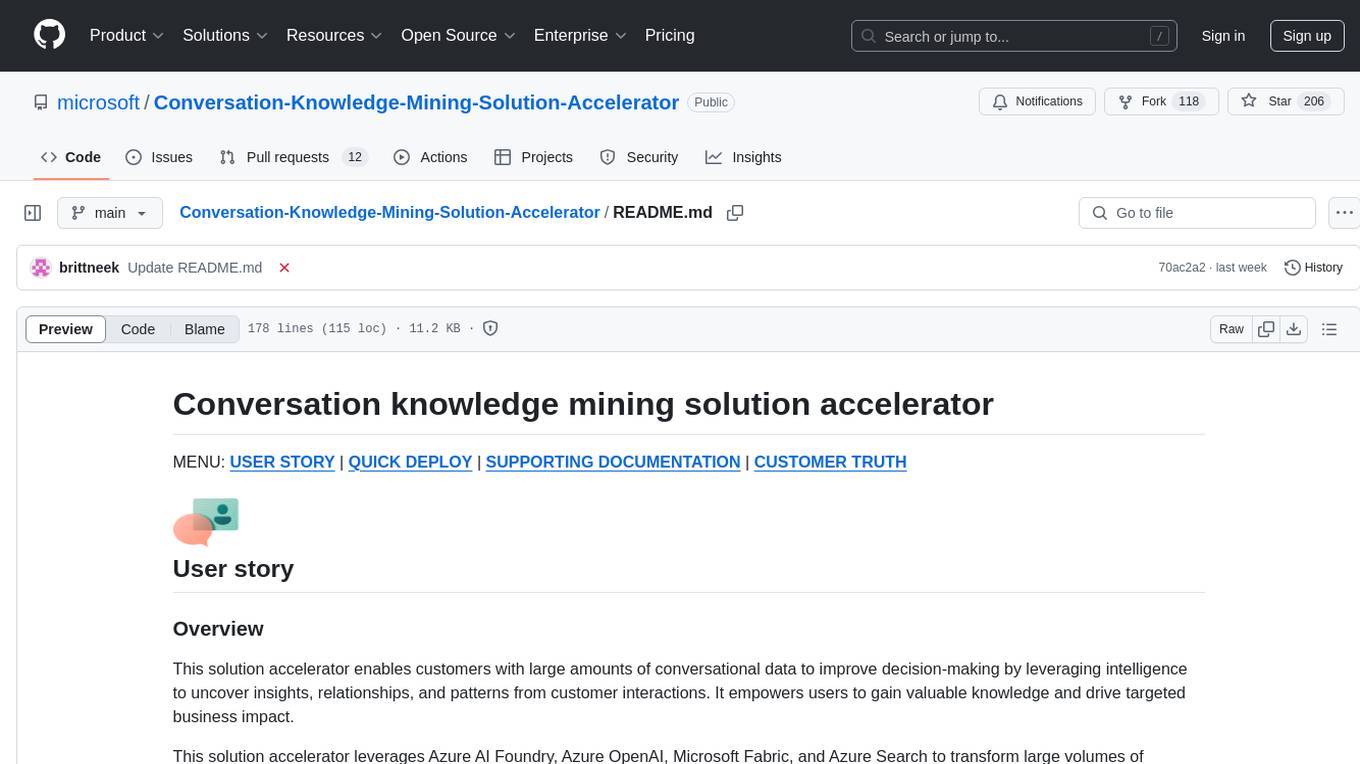
Conversation-Knowledge-Mining-Solution-Accelerator
The Conversation Knowledge Mining Solution Accelerator enables customers to leverage intelligence to uncover insights, relationships, and patterns from conversational data. It empowers users to gain valuable knowledge and drive targeted business impact by utilizing Azure AI Foundry, Azure OpenAI, Microsoft Fabric, and Azure Search for topic modeling, key phrase extraction, speech-to-text transcription, and interactive chat experiences.

Geoweaver
Geoweaver is an in-browser software that enables users to easily compose and execute full-stack data processing workflows using online spatial data facilities, high-performance computation platforms, and open-source deep learning libraries. It provides server management, code repository, workflow orchestration software, and history recording capabilities. Users can run it from both local and remote machines. Geoweaver aims to make data processing workflows manageable for non-coder scientists and preserve model run history. It offers features like progress storage, organization, SSH connection to external servers, and a web UI with Python support.
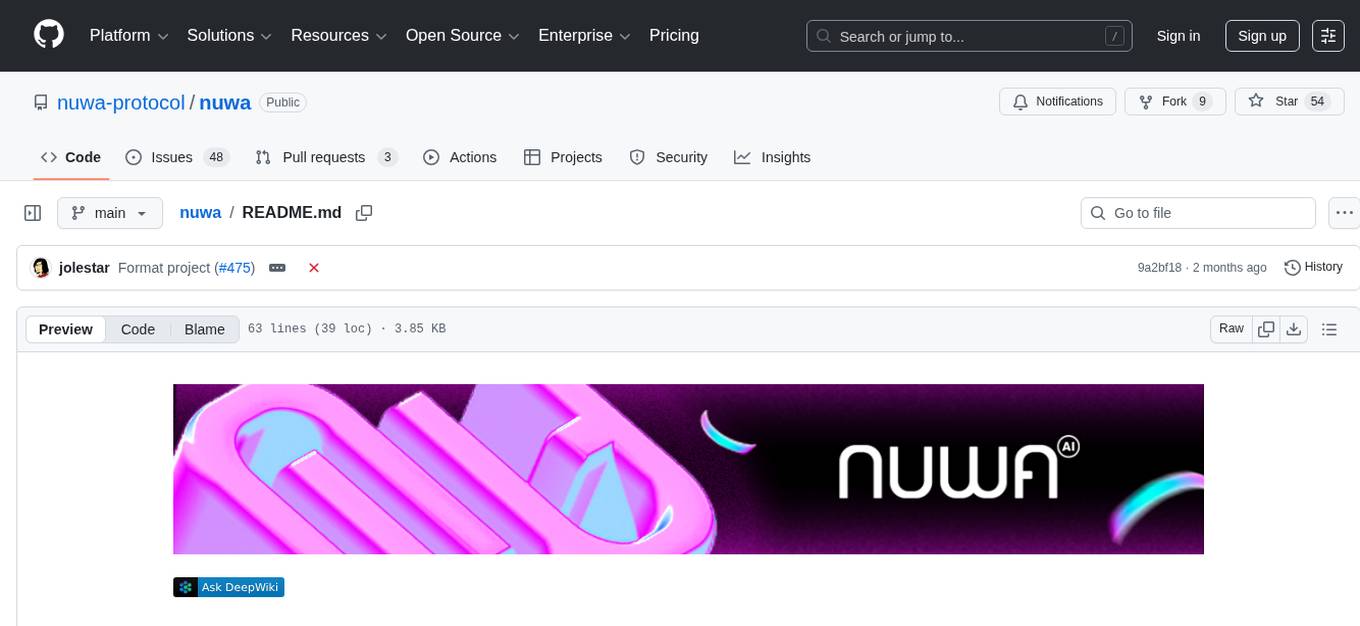
nuwa
Nuwa is an AI platform where users pay directly to developers for AI models and agents. Payments are made using cryptocurrencies secured by blockchain. User data and authentications are based on Decentralized Identity (DID). Nuwa aims to reduce friction for users, enhance their daily AI experience, and provide direct monetization for developers. The platform offers an agent-first approach, protocol-powered solutions, and user-aligned services. It includes a Nuwa Client for AI chat with DID-based authentication and cryptocurrency payments, and Nuwa Kit for developers to build and launch AI models and agents into Caps (capabilities). The repository contains various components of the Nuwa Protocol, including Nuwa Improvement Proposals, smart contracts, client agent implementation, development kits, reference implementations of key services, and websites for documentation and landing pages.

AgentUp
AgentUp is an active development tool that provides a developer-first agent framework for creating AI agents with enterprise-grade infrastructure. It allows developers to define agents with configuration, ensuring consistent behavior across environments. The tool offers secure design, configuration-driven architecture, extensible ecosystem for customizations, agent-to-agent discovery, asynchronous task architecture, deterministic routing, and MCP support. It supports multiple agent types like reactive agents and iterative agents, making it suitable for chatbots, interactive applications, research tasks, and more. AgentUp is built by experienced engineers from top tech companies and is designed to make AI agents production-ready, secure, and reliable.
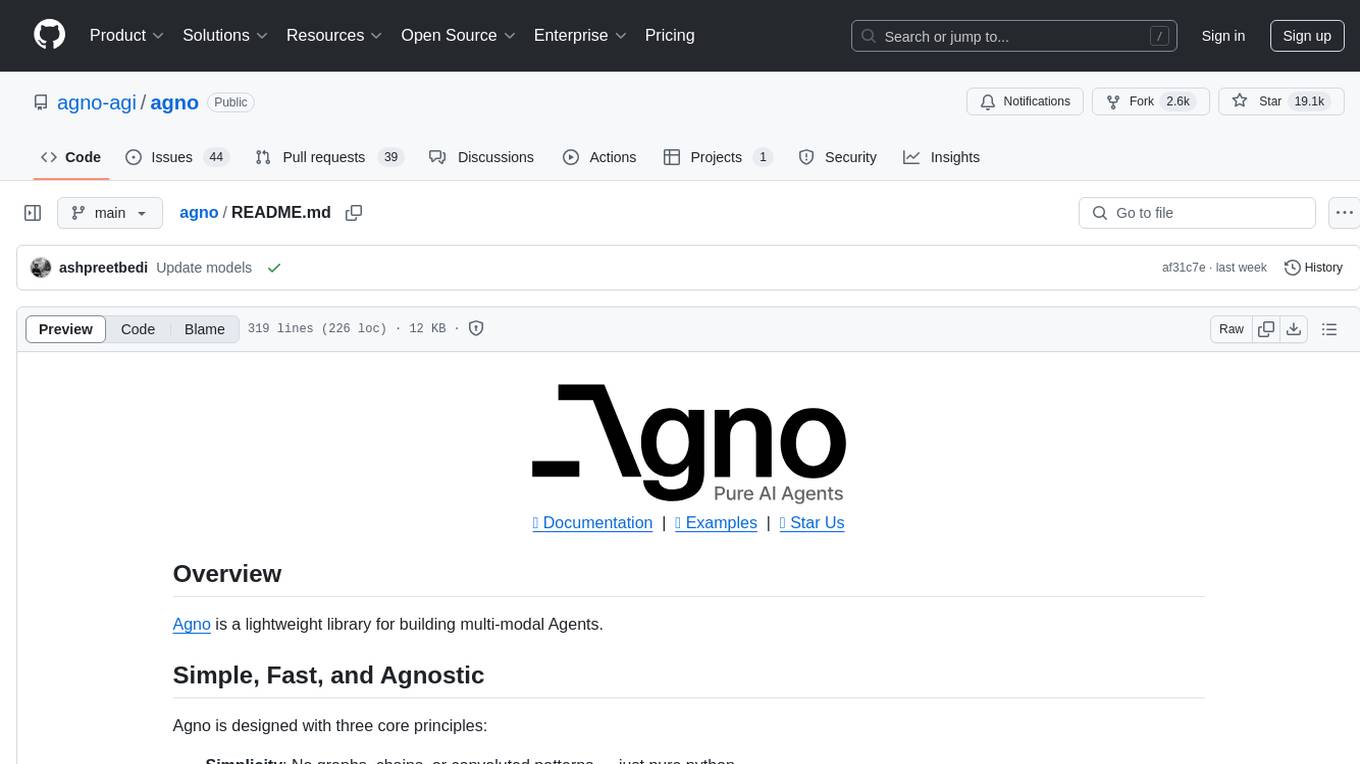
agno
Agno is a lightweight library for building multi-modal Agents. It is designed with core principles of simplicity, uncompromising performance, and agnosticism, allowing users to create blazing fast agents with minimal memory footprint. Agno supports any model, any provider, and any modality, making it a versatile container for AGI. Users can build agents with lightning-fast agent creation, model agnostic capabilities, native support for text, image, audio, and video inputs and outputs, memory management, knowledge stores, structured outputs, and real-time monitoring. The library enables users to create autonomous programs that use language models to solve problems, improve responses, and achieve tasks with varying levels of agency and autonomy.
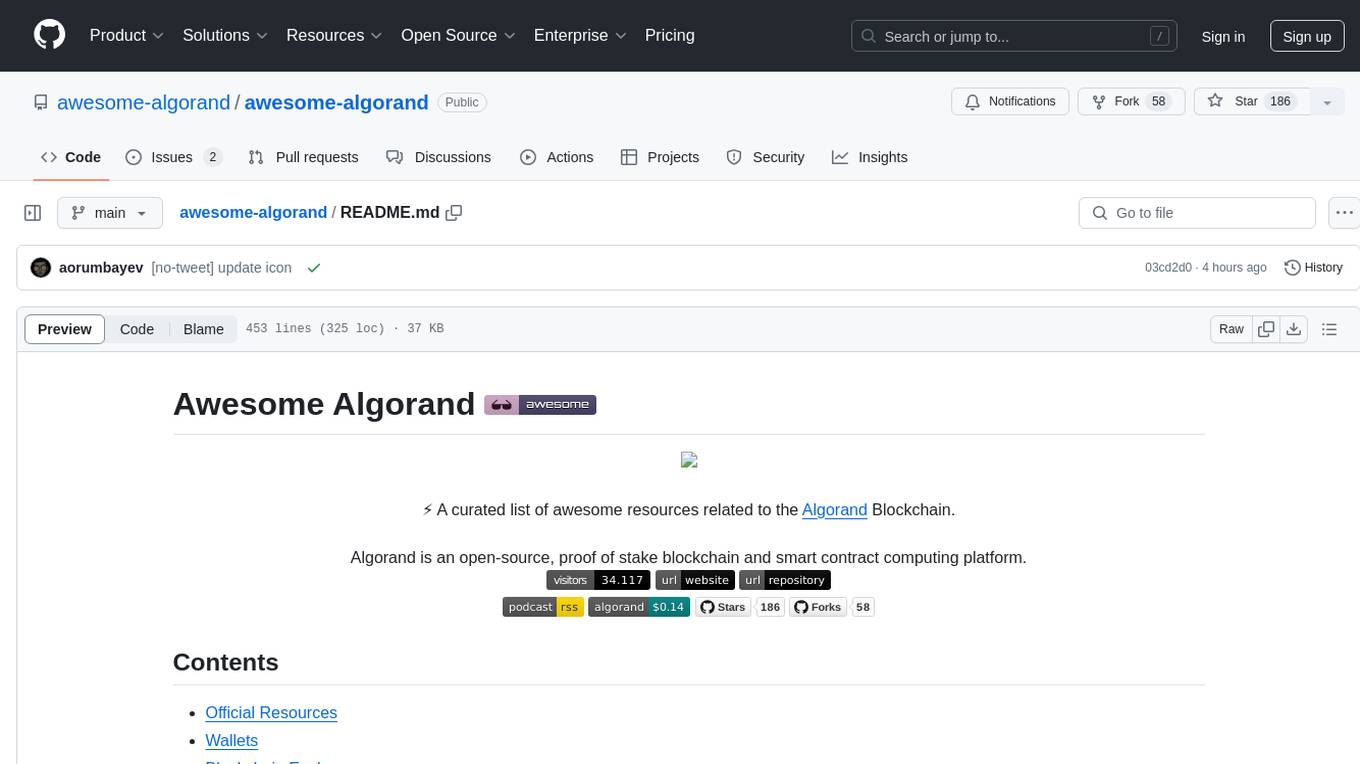
awesome-algorand
Awesome Algorand is a curated list of resources related to the Algorand Blockchain, including official resources, wallets, blockchain explorers, portfolio trackers, learning resources, development tools, DeFi platforms, nodes & consensus participation, subscription management, security auditing services, blockchain bridges, oracles, name services, community resources, Algorand Request for Comments, metrics and analytics services, decentralized voting tools, and NFT marketplaces. The repository provides a comprehensive collection of tools, tutorials, protocols, and platforms for developers, users, and enthusiasts interested in the Algorand ecosystem.
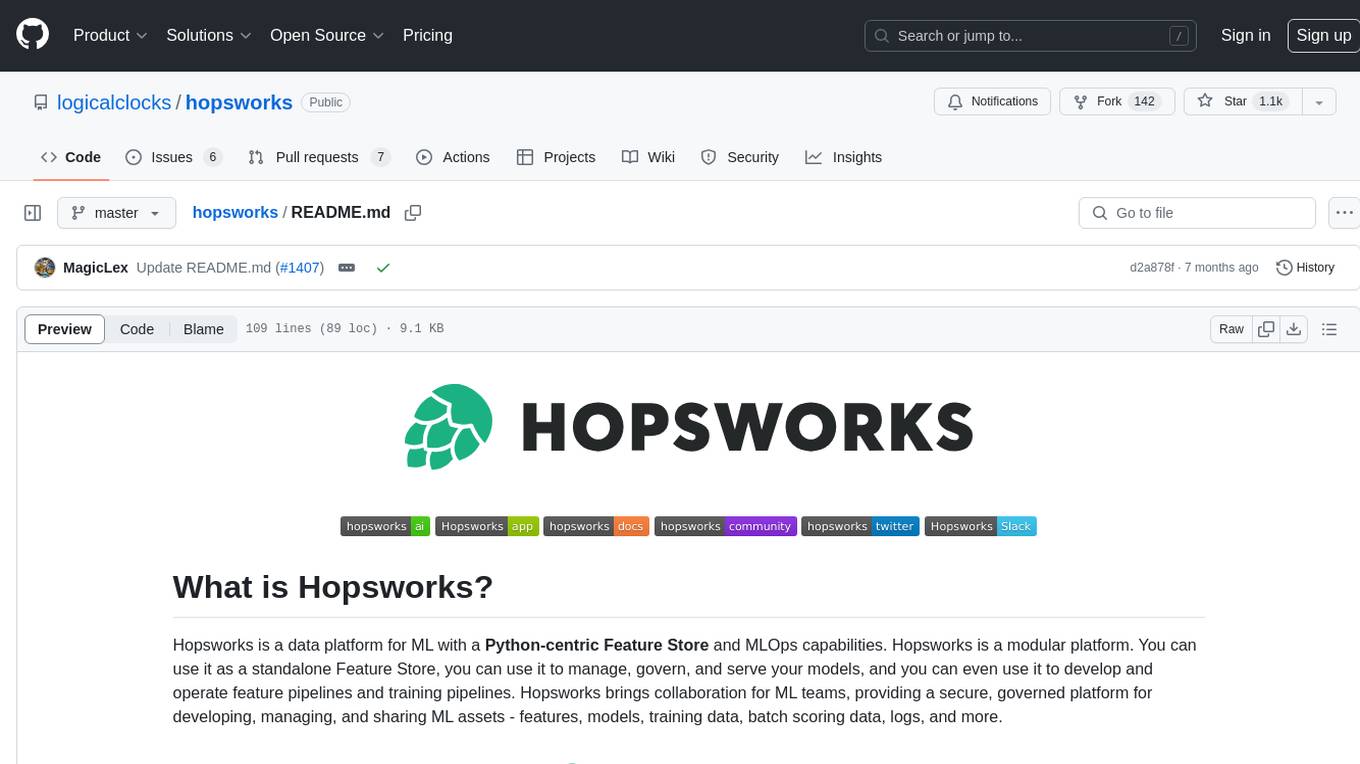
hopsworks
Hopsworks is a data platform for ML with a Python-centric Feature Store and MLOps capabilities. It provides collaboration for ML teams, offering a secure, governed platform for developing, managing, and sharing ML assets. Hopsworks supports project-based multi-tenancy, team collaboration, development tools for Data Science, and is available on any platform including managed cloud services and on-premise installations. The platform enables end-to-end responsibility from raw data to managed features and models, supports versioning, lineage, and provenance, and facilitates the complete MLOps life cycle.

Revornix
Revornix is an information management tool designed for the AI era. It allows users to conveniently integrate all visible information and generates comprehensive reports at specific times. The tool offers cross-platform availability, all-in-one content aggregation, document transformation & vectorized storage, native multi-tenancy, localization & open-source features, smart assistant & built-in MCP, seamless LLM integration, and multilingual & responsive experience for users.
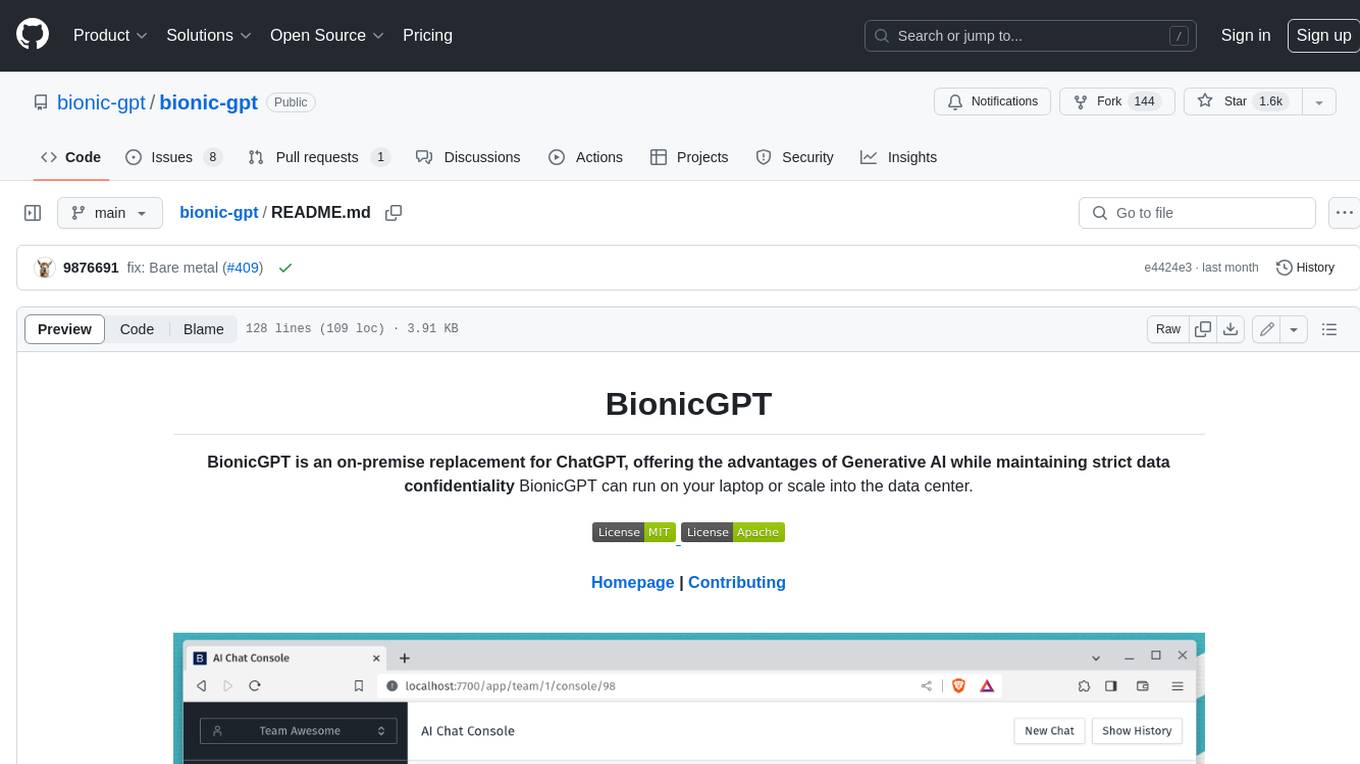
bionic-gpt
BionicGPT is an on-premise replacement for ChatGPT, offering the advantages of Generative AI while maintaining strict data confidentiality. BionicGPT can run on your laptop or scale into the data center.
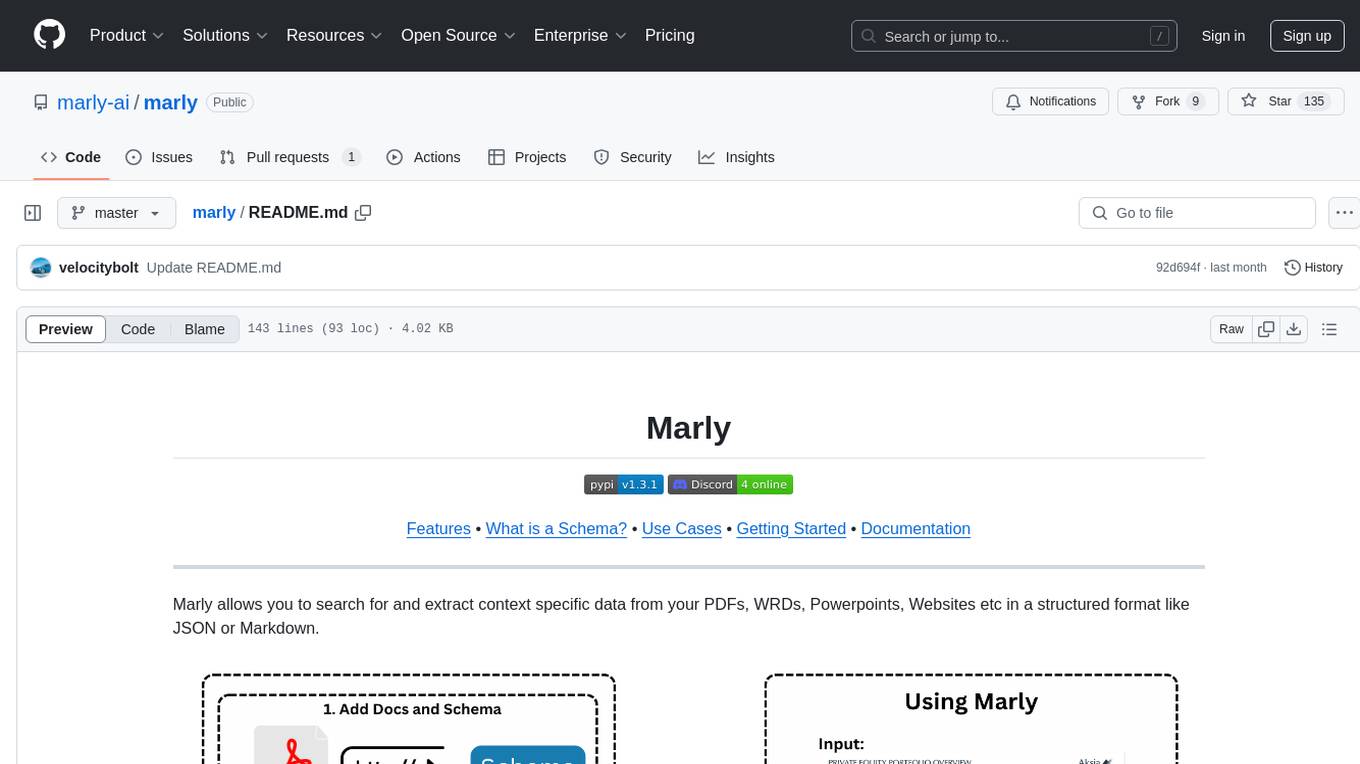
marly
Marly is a tool that allows users to search for and extract context-specific data from various types of documents such as PDFs, Word files, Powerpoints, and websites. It provides the ability to extract data in structured formats like JSON or Markdown, making it easy to integrate into workflows. Marly supports multi-schema and multi-document extraction, offers built-in caching for rapid repeat extractions, and ensures no vendor lock-in by allowing flexibility in choosing model providers.
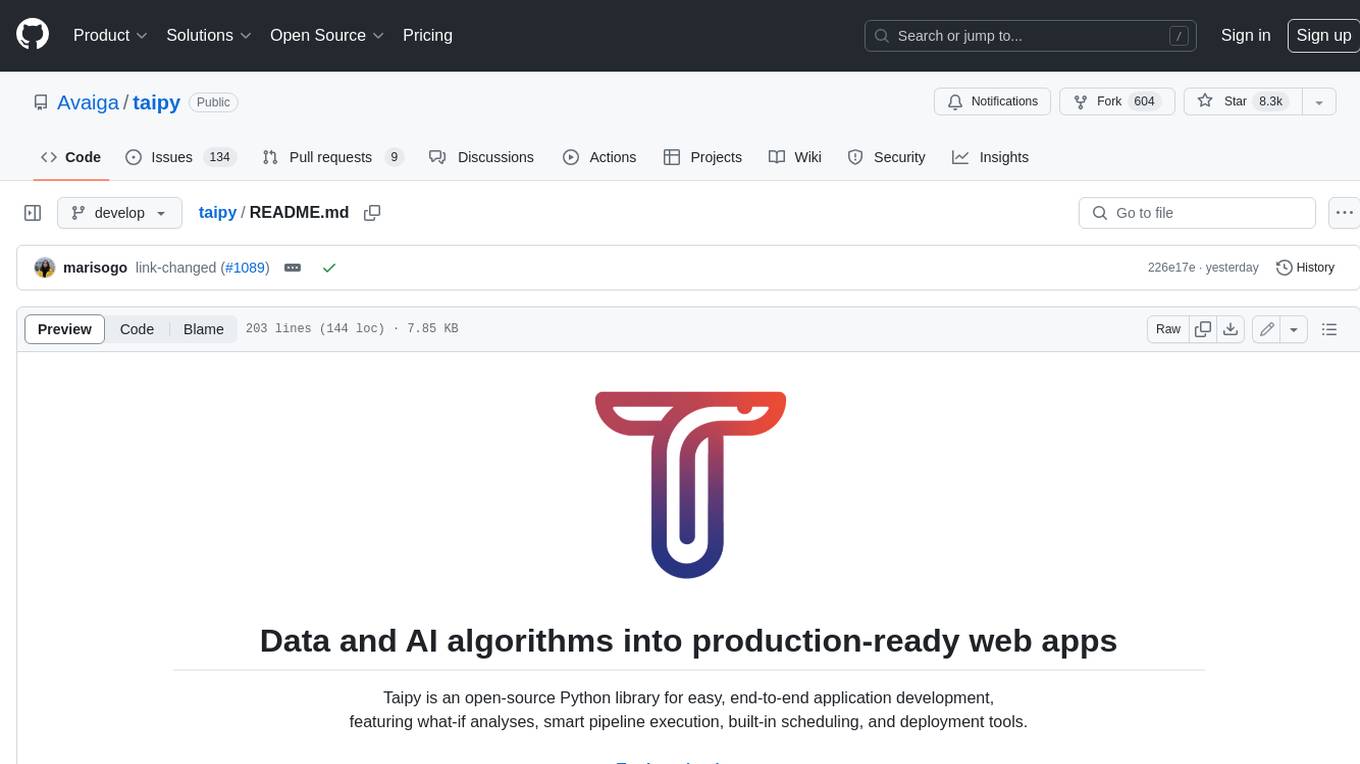
taipy
Taipy is an open-source Python library for easy, end-to-end application development, featuring what-if analyses, smart pipeline execution, built-in scheduling, and deployment tools.
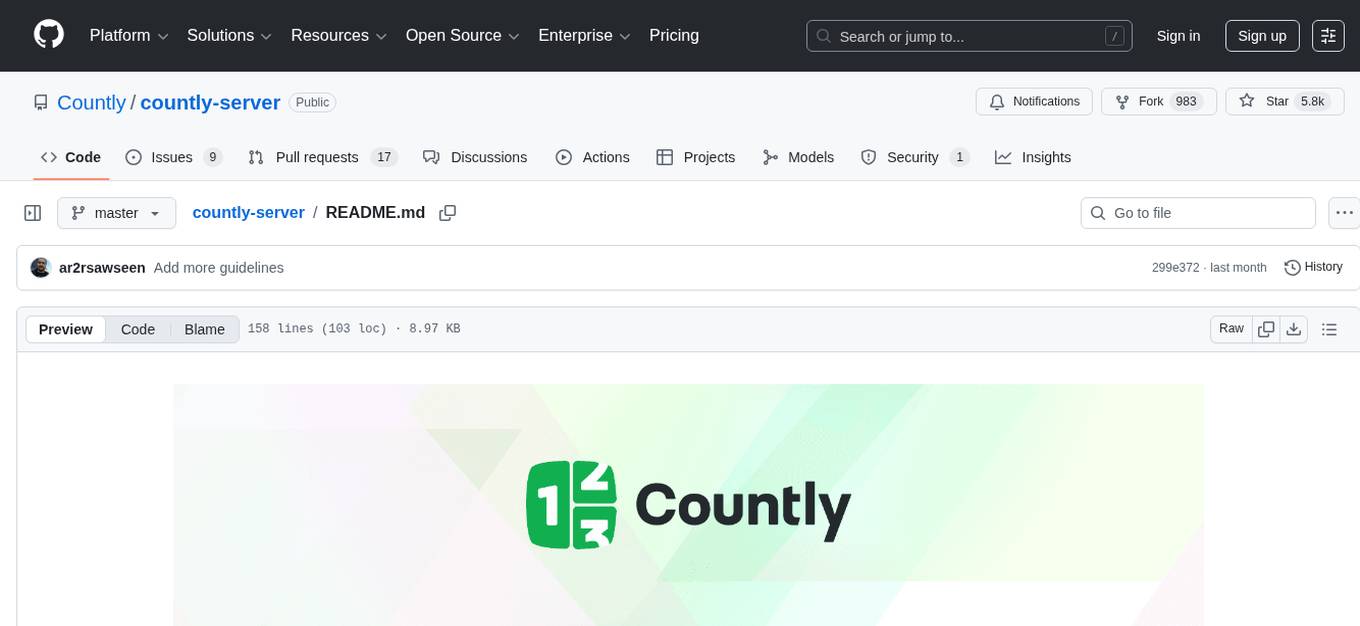
countly-server
Countly is a privacy-first, AI-ready analytics and customer engagement platform built for organizations that require full data ownership and deployment flexibility. It can be deployed on-premises or in a private cloud, giving complete control over data, infrastructure, compliance, and security. Teams use Countly to understand user behavior across mobile, web, desktop, and connected devices, optimize product and customer experiences in real time, and automate and personalize customer engagement across channels. With flexible data tracking, customizable dashboards, and a modular plugin-based architecture, Countly scales with the product while ensuring long-term autonomy and zero vendor lock-in. Built for privacy, designed for flexibility, and ready for AI-driven innovation.
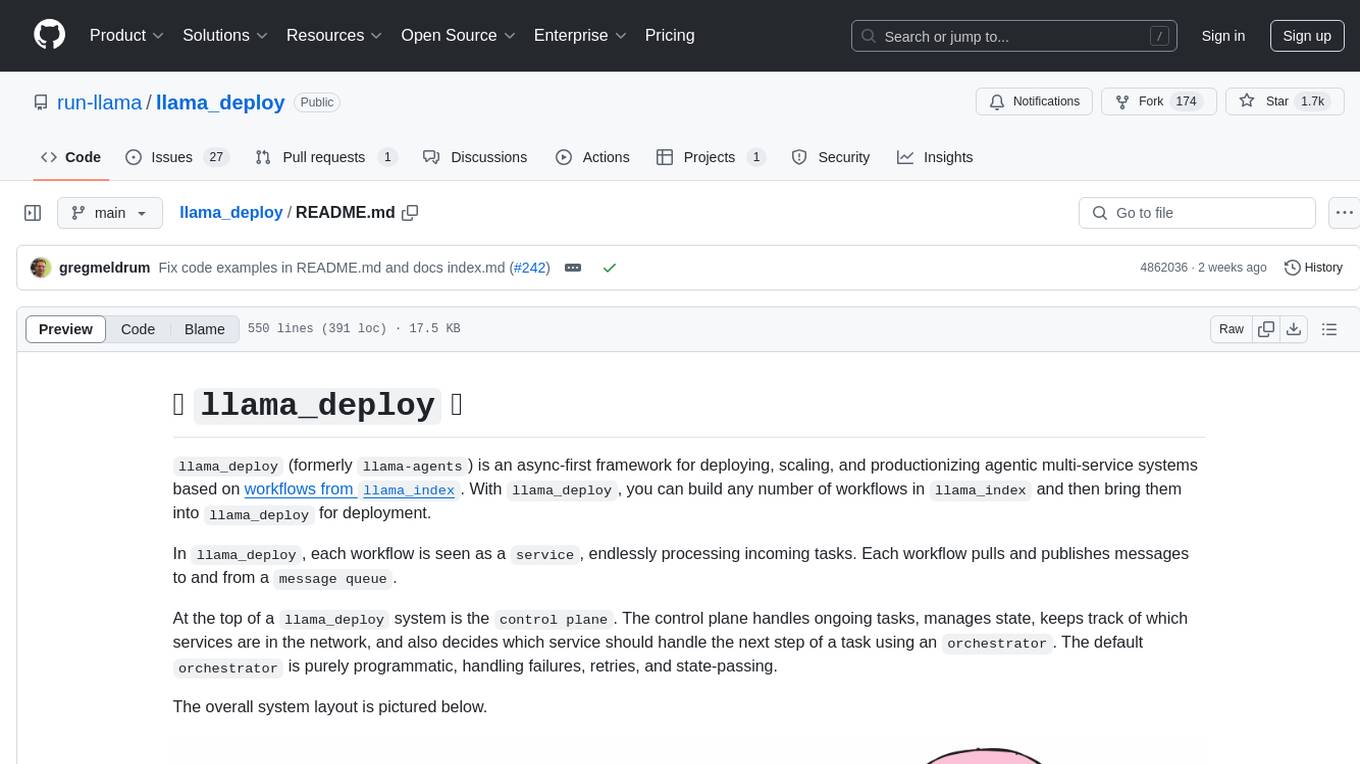
llama_deploy
llama_deploy is an async-first framework for deploying, scaling, and productionizing agentic multi-service systems based on workflows from llama_index. It allows building workflows in llama_index and deploying them seamlessly with minimal changes to code. The system includes services endlessly processing tasks, a control plane managing state and services, an orchestrator deciding task handling, and fault tolerance mechanisms. It is designed for high-concurrency scenarios, enabling real-time and high-throughput applications.
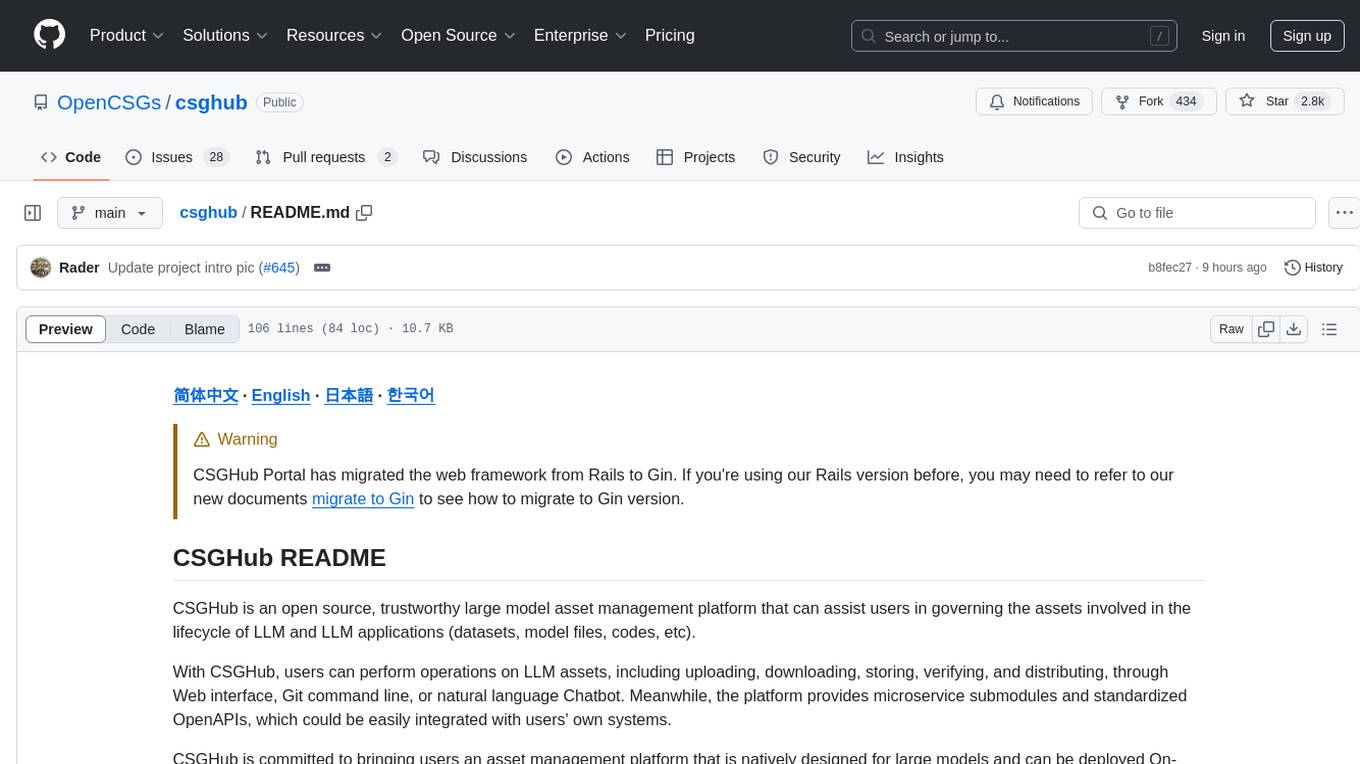
csghub
CSGHub is an open source platform for managing large model assets, including datasets, model files, and codes. It offers functionalities similar to a privatized Huggingface, managing assets in a manner akin to how OpenStack Glance manages virtual machine images. Users can perform operations such as uploading, downloading, storing, verifying, and distributing assets through various interfaces. The platform provides microservice submodules and standardized OpenAPIs for easy integration with users' systems. CSGHub is designed for large models and can be deployed On-Premise for offline operation.
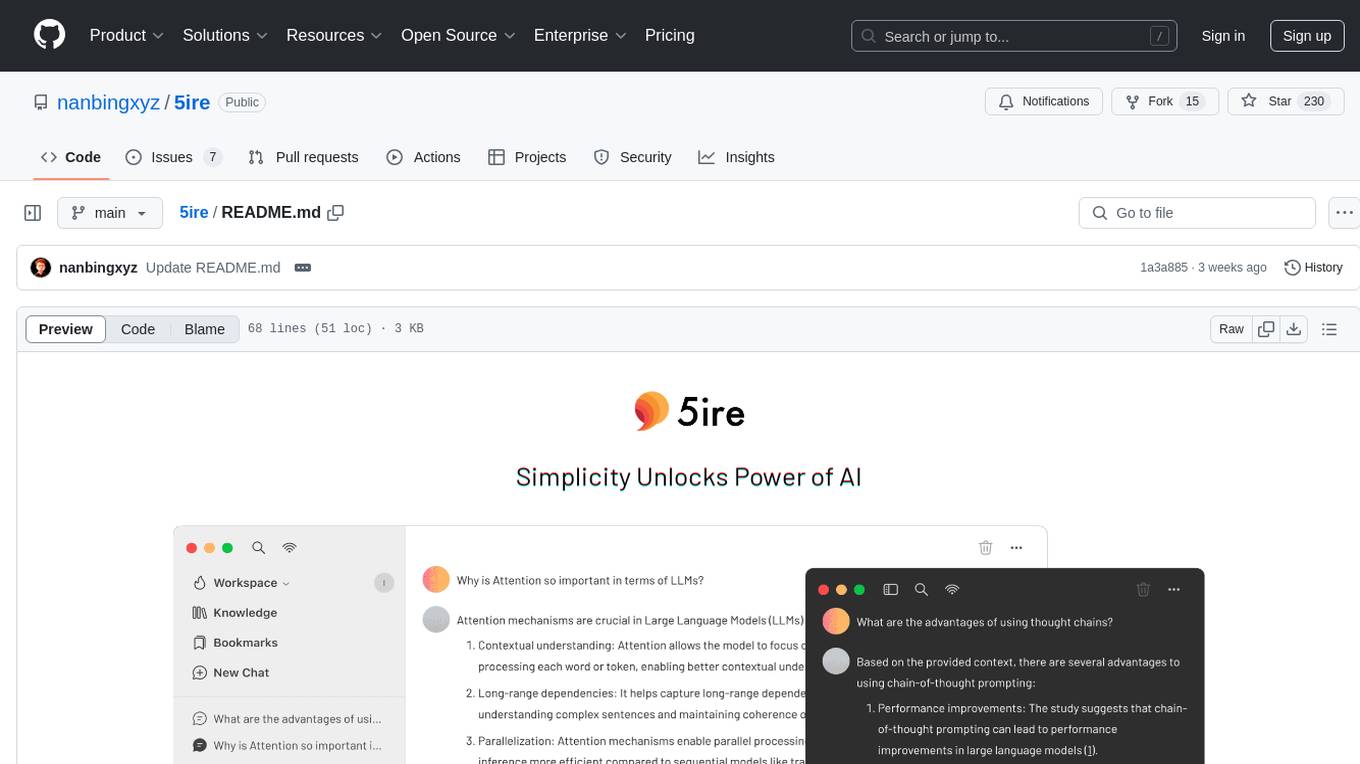
5ire
5ire is a cross-platform desktop client that integrates a local knowledge base for multilingual vectorization, supports parsing and vectorization of various document formats, offers usage analytics to track API spending, provides a prompts library for creating and organizing prompts with variable support, allows bookmarking of conversations, and enables quick keyword searches across conversations. It is licensed under the GNU General Public License version 3.
For similar tasks

CryptoToken-Sender-Airdrop-Staking-Liquidity
The CryptoToken-Sender-Airdrop-Staking-Liquidity repository provides an ultimate tool for efficient and automated token distribution across blockchain wallets. It is designed for projects, DAOs, and blockchain-based organizations that need to distribute tokens to thousands of wallet addresses with ease. The platform offers advanced integrations with DeFi protocols for staking, liquidity farming, and automated payments. Users can send tokens in bulk, distribute tokens to multiple wallets instantly, optimize gas fees, integrate with DeFi protocols for liquidity provision and staking, set up recurring payments, automate liquidity farming strategies, support multi-chain operations, monitor transactions in real-time, and work with various token standards. The repository includes features for connecting to blockchains, importing and managing wallets, customizing mailing parameters, monitoring transaction status, logging transactions, and providing a user-friendly interface for configuration and operation.
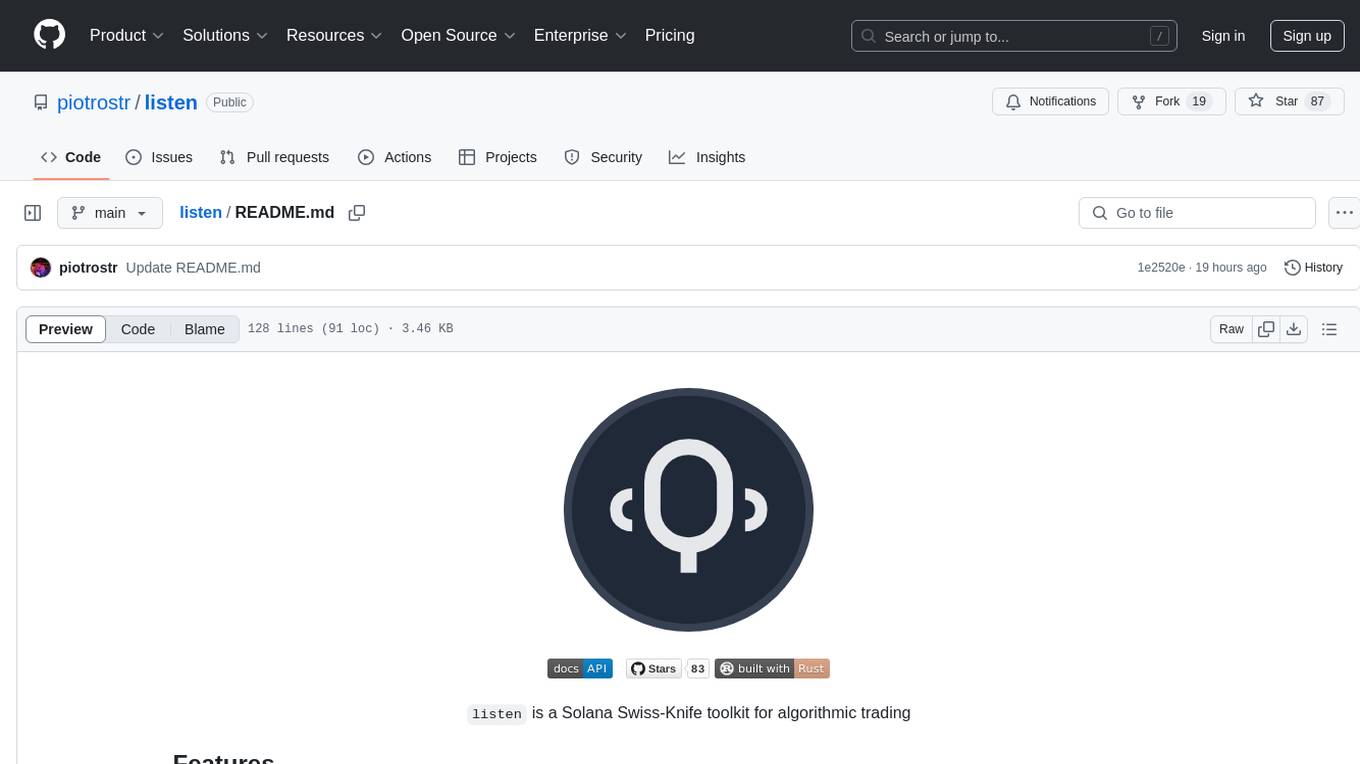
listen
Listen is a Solana Swiss-Knife toolkit for algorithmic trading, offering real-time transaction monitoring, multi-DEX swap execution, fast transactions with Jito MEV bundles, price tracking, token management utilities, and performance monitoring. It includes tools for grabbing data from unofficial APIs and works with the $arc rig framework for AI Agents to interact with the Solana blockchain. The repository provides miscellaneous tools for analysis and data retrieval, with the core functionality in the `src` directory.
For similar jobs
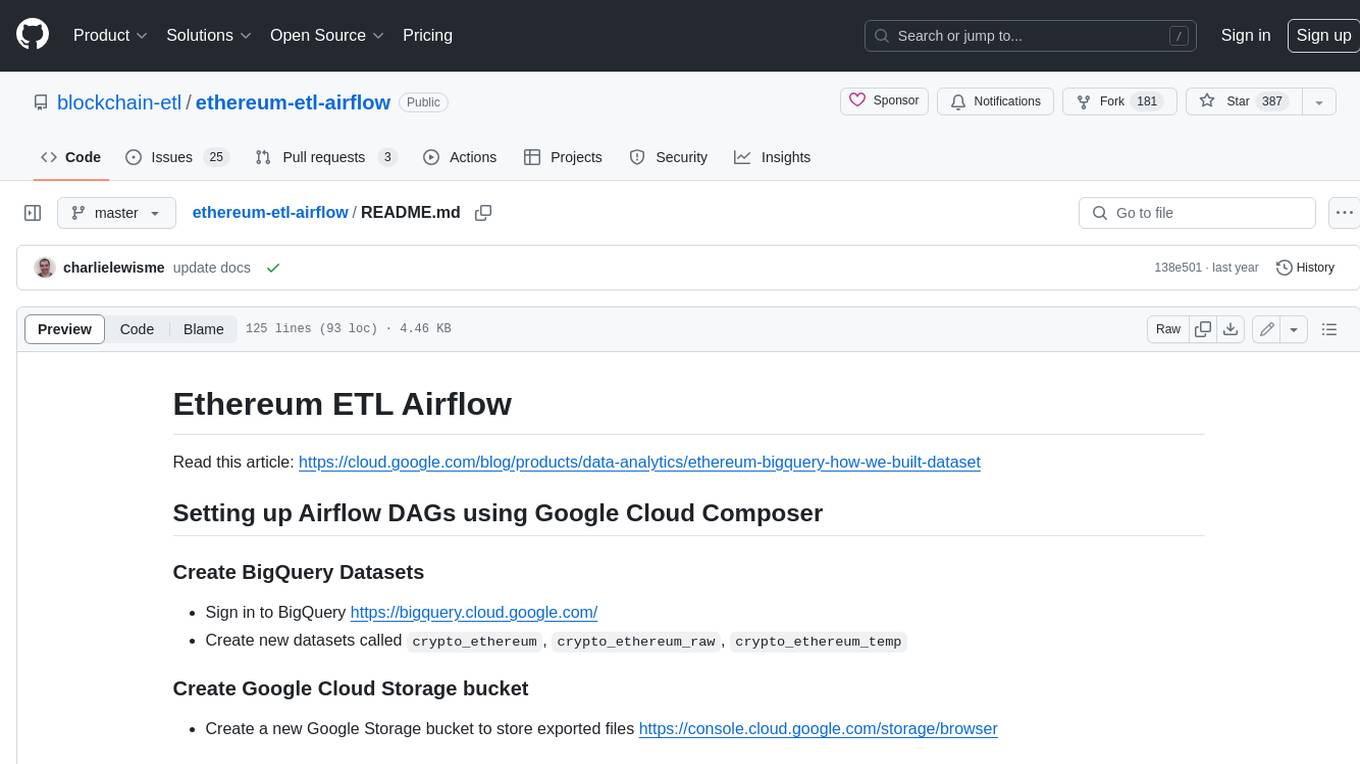
ethereum-etl-airflow
This repository contains Airflow DAGs for extracting, transforming, and loading (ETL) data from the Ethereum blockchain into BigQuery. The DAGs use the Google Cloud Platform (GCP) services, including BigQuery, Cloud Storage, and Cloud Composer, to automate the ETL process. The repository also includes scripts for setting up the GCP environment and running the DAGs locally.
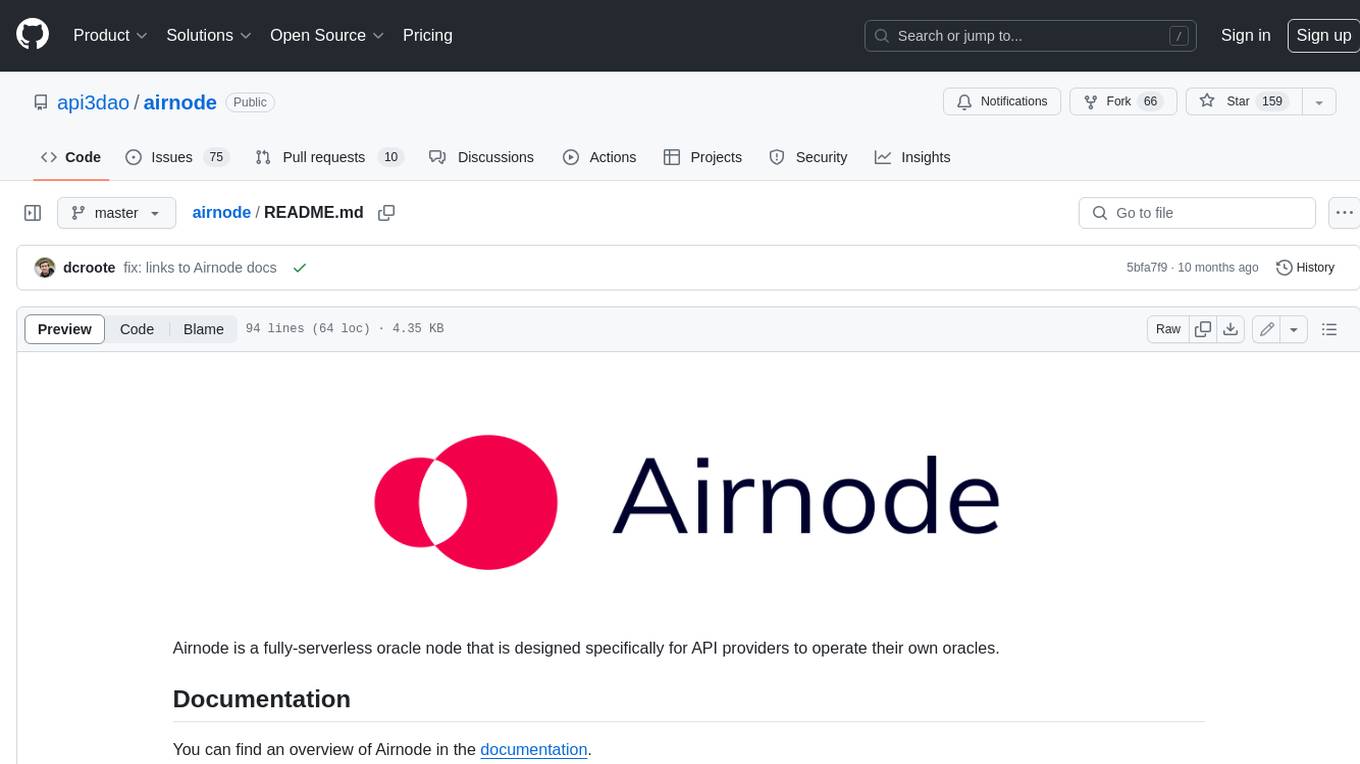
airnode
Airnode is a fully-serverless oracle node that is designed specifically for API providers to operate their own oracles.
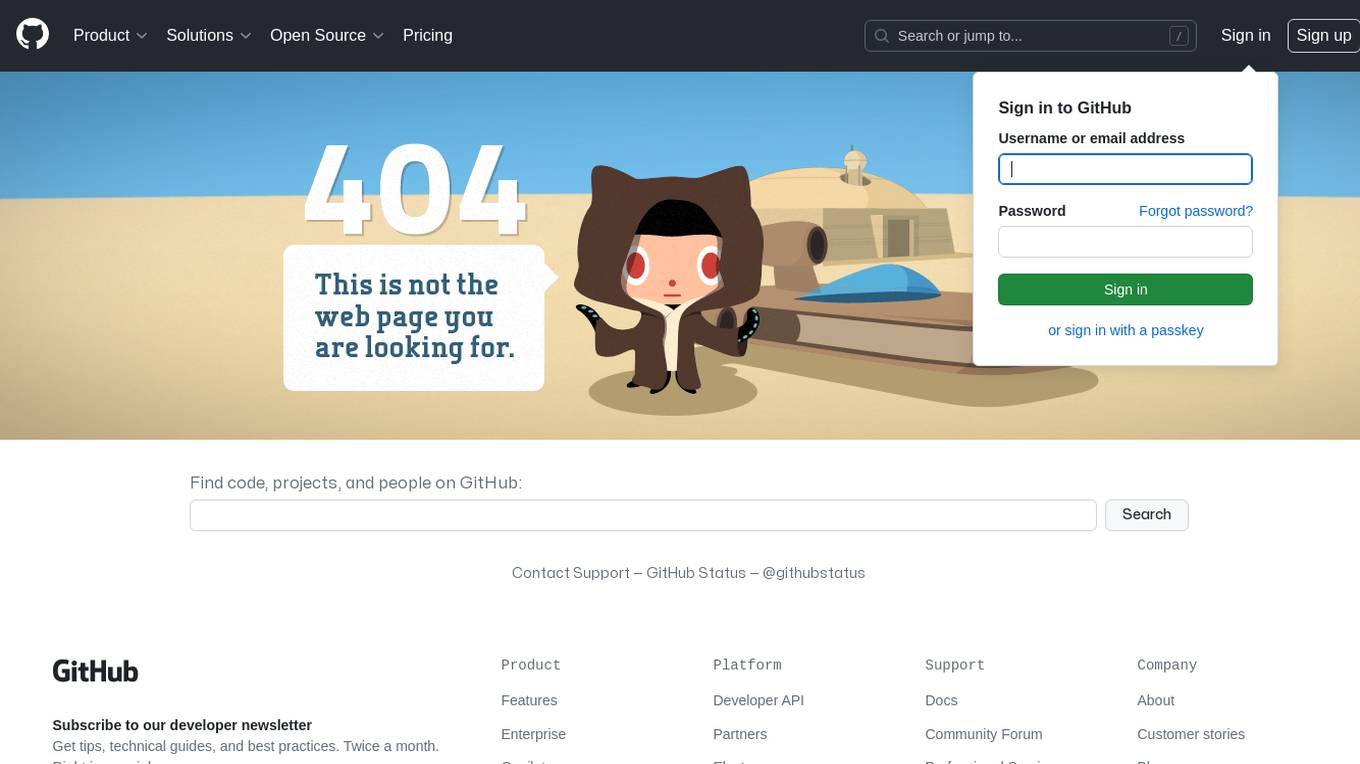
CHATPGT-MEV-BOT
The 𝓜𝓔𝓥-𝓑𝓞𝓣 is a revolutionary tool that empowers users to maximize their ETH earnings through advanced slippage techniques within the Ethereum ecosystem. Its user-centric design, optimized earning mechanism, and comprehensive security measures make it an indispensable tool for traders seeking to enhance their crypto trading strategies. With its current free access, there's no better time to explore the 𝓜𝓔𝓥-𝓑𝓞𝓣's capabilities and witness the transformative impact it can have on your crypto trading journey.
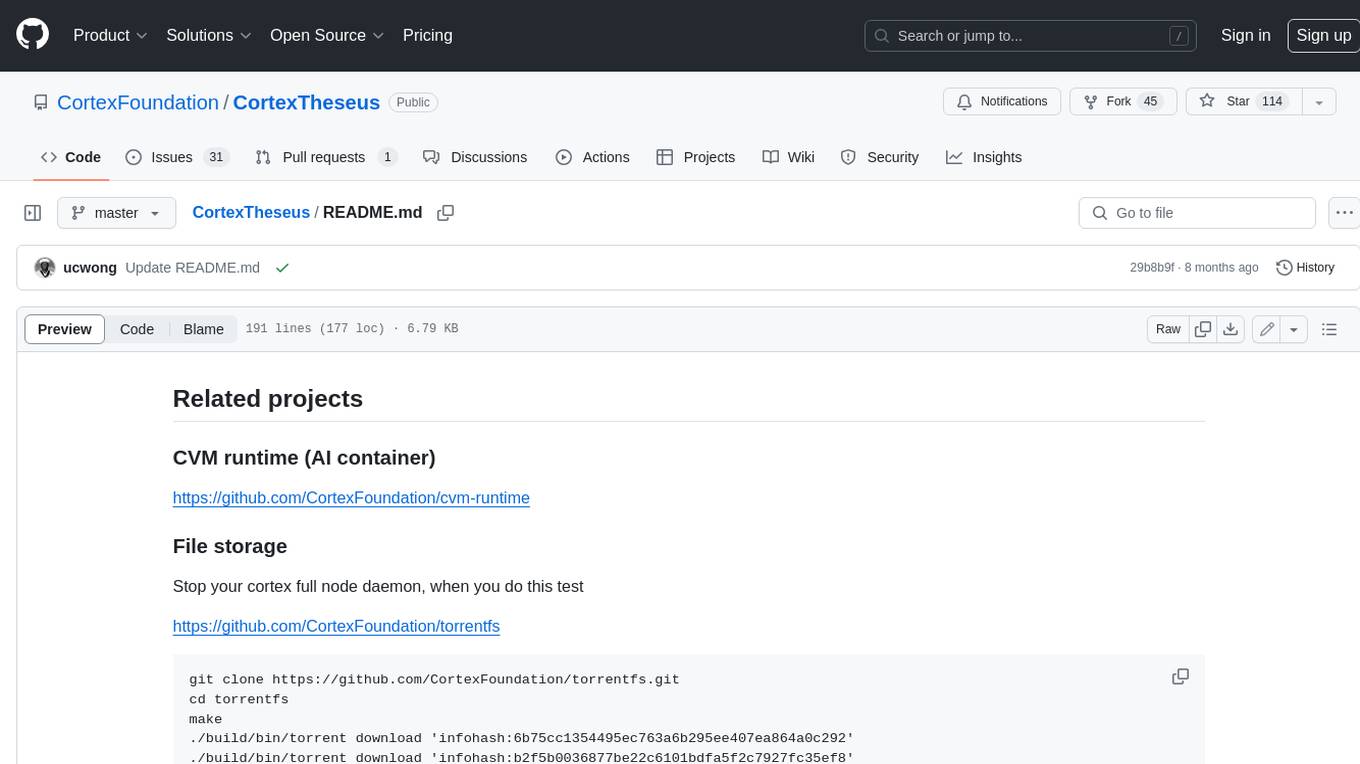
CortexTheseus
CortexTheseus is a full node implementation of the Cortex blockchain, written in C++. It provides a complete set of features for interacting with the Cortex network, including the ability to create and manage accounts, send and receive transactions, and participate in consensus. CortexTheseus is designed to be scalable, secure, and easy to use, making it an ideal choice for developers building applications on the Cortex blockchain.
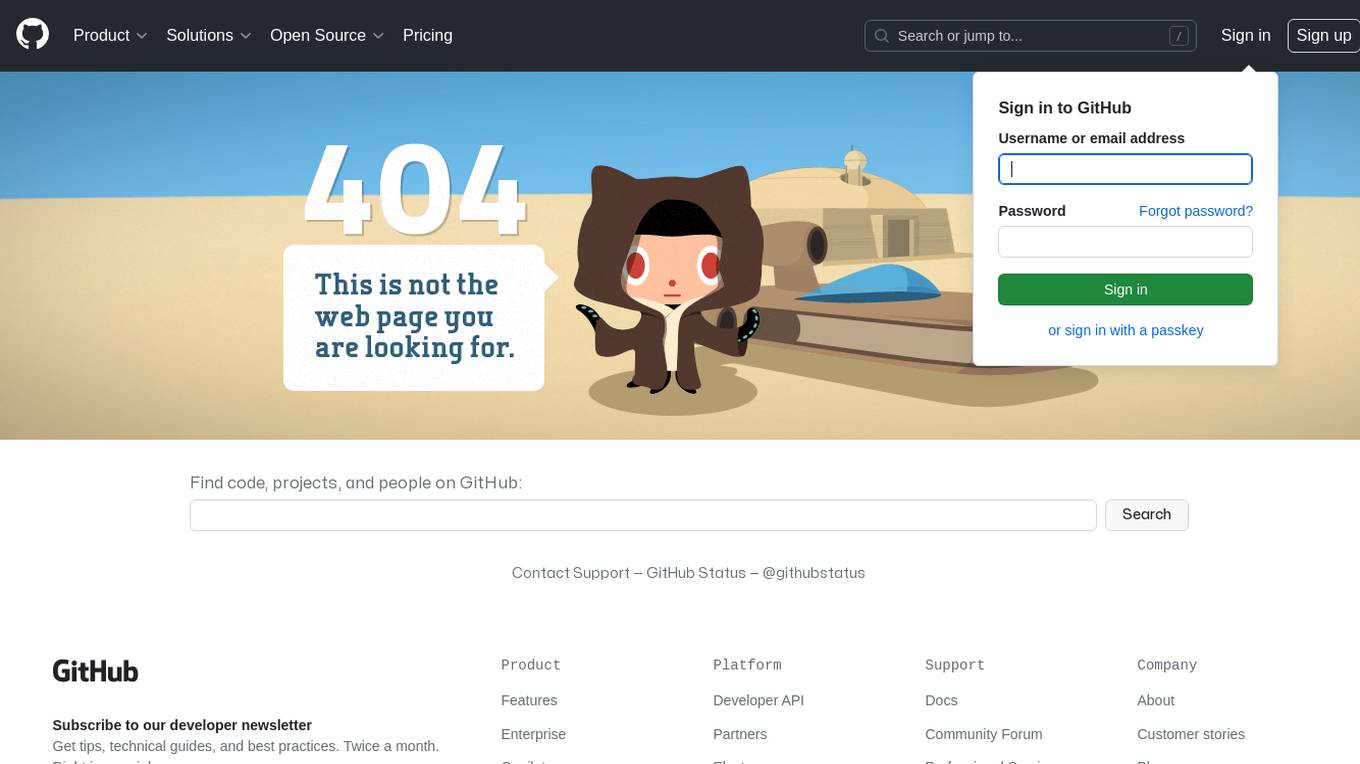
CHATPGT-MEV-BOT-ETH
This tool is a bot that monitors the performance of MEV transactions on the Ethereum blockchain. It provides real-time data on MEV profitability, transaction volume, and network congestion. The bot can be used to identify profitable MEV opportunities and to track the performance of MEV strategies.
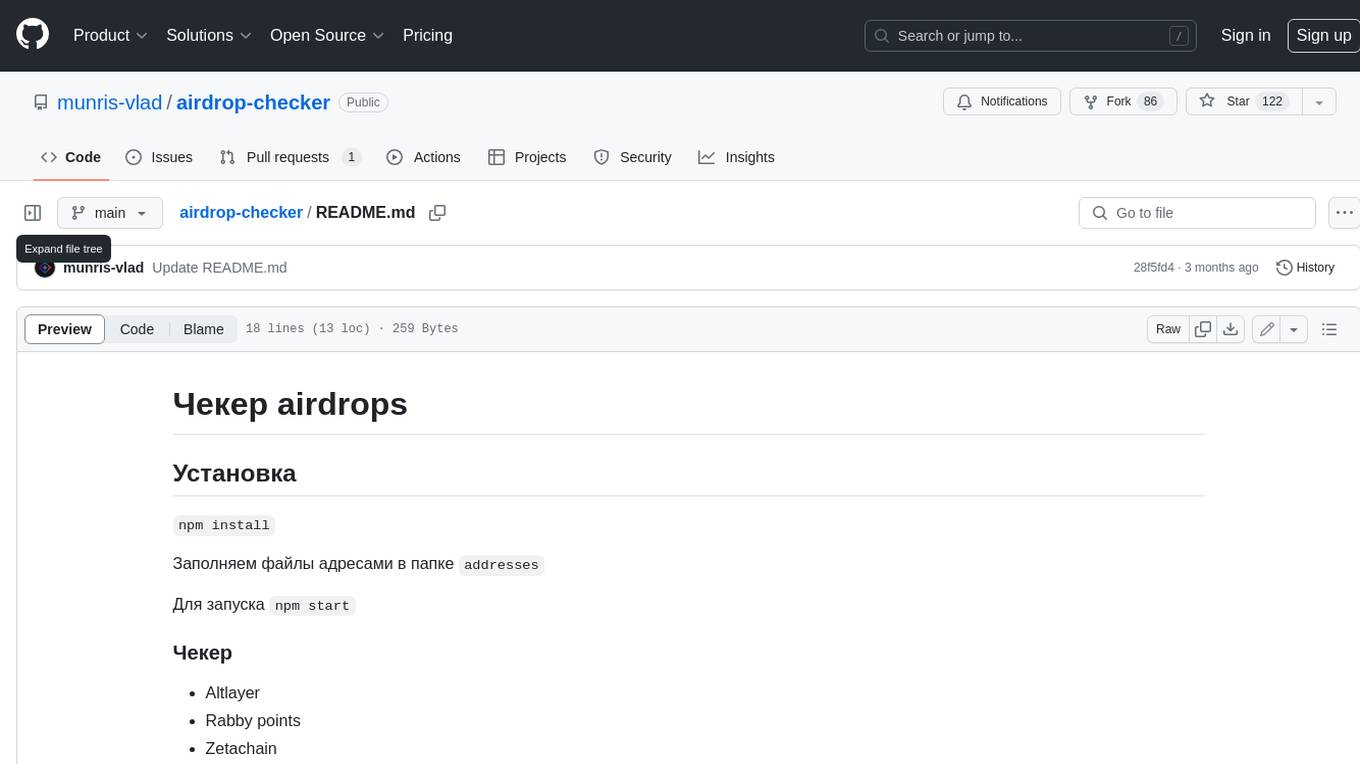
airdrop-checker
Airdrop-checker is a tool that helps you to check if you are eligible for any airdrops. It supports multiple airdrops, including Altlayer, Rabby points, Zetachain, Frame, Anoma, Dymension, and MEME. To use the tool, you need to install it using npm and then fill the addresses files in the addresses folder with your wallet addresses. Once you have done this, you can run the tool using npm start.
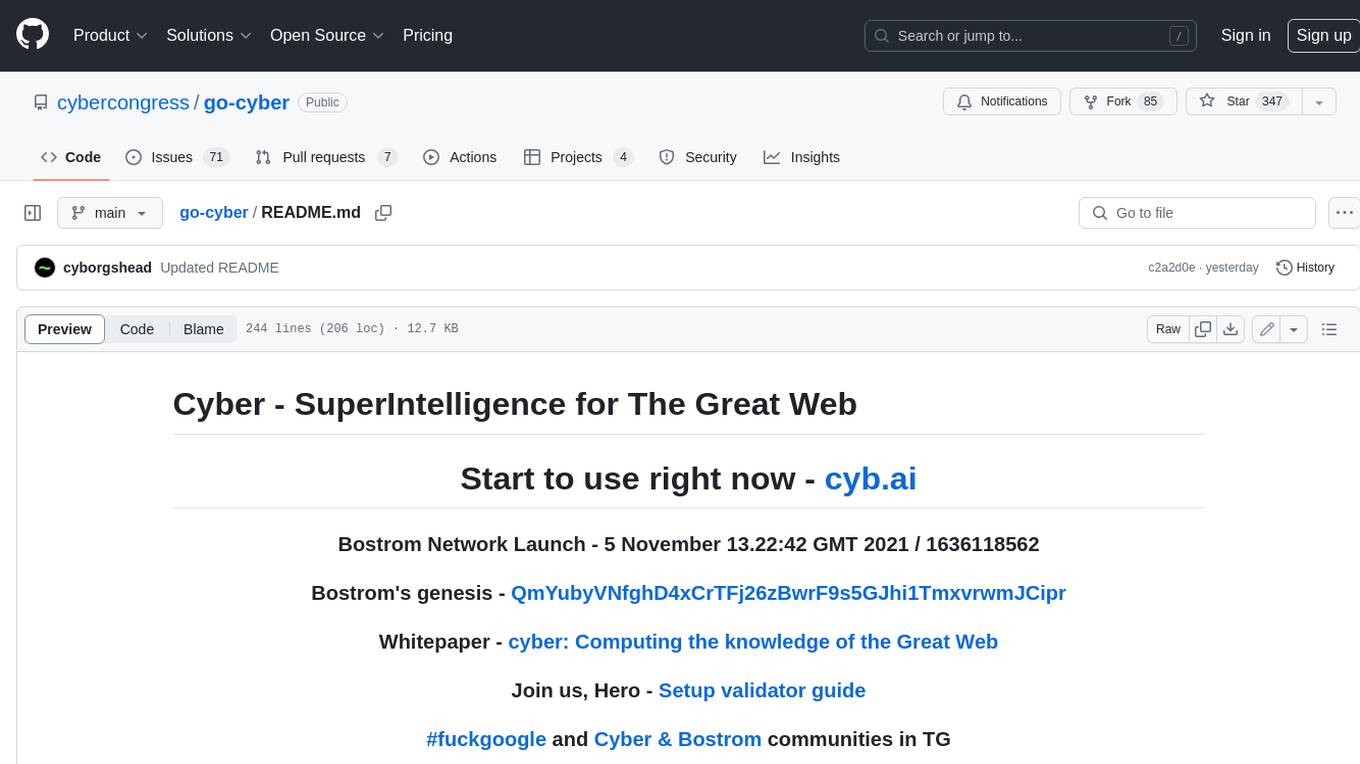
go-cyber
Cyber is a superintelligence protocol that aims to create a decentralized and censorship-resistant internet. It uses a novel consensus mechanism called CometBFT and a knowledge graph to store and process information. Cyber is designed to be scalable, secure, and efficient, and it has the potential to revolutionize the way we interact with the internet.
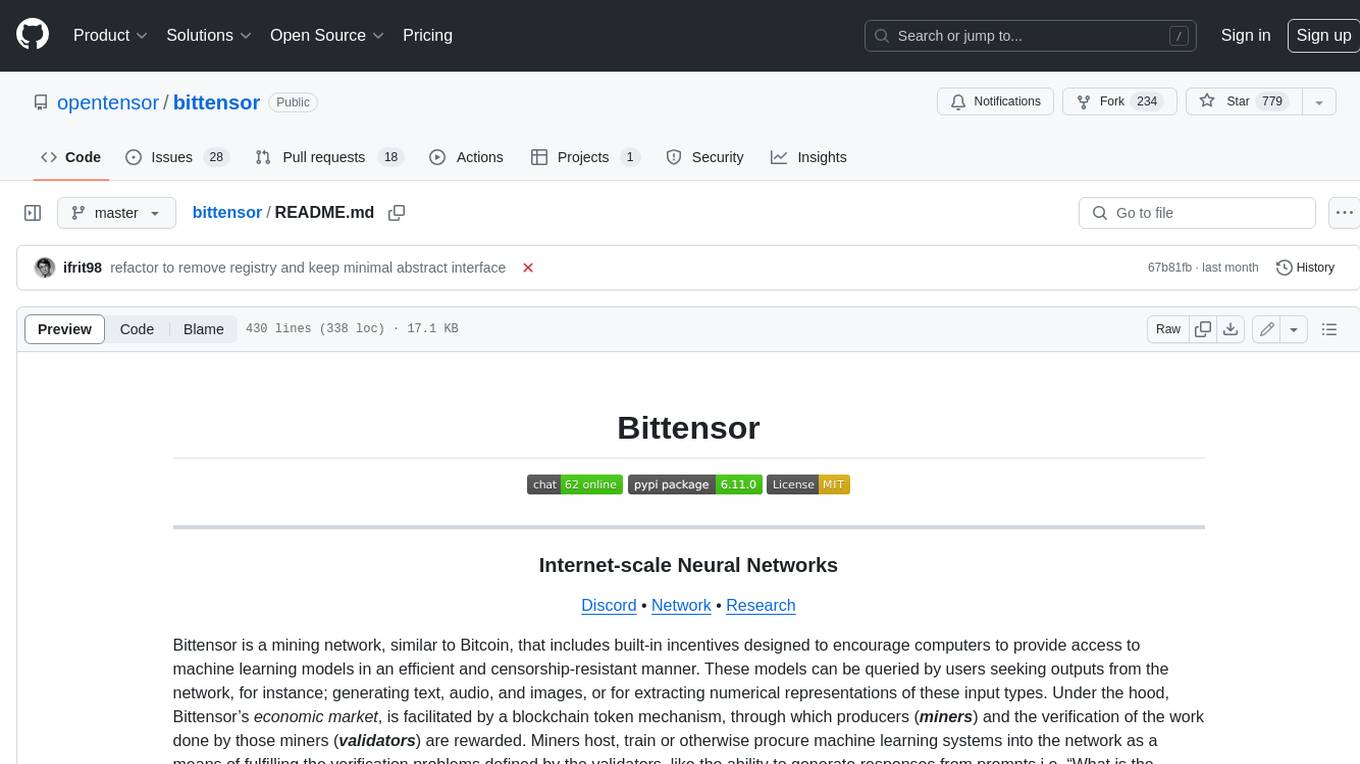
bittensor
Bittensor is an internet-scale neural network that incentivizes computers to provide access to machine learning models in a decentralized and censorship-resistant manner. It operates through a token-based mechanism where miners host, train, and procure machine learning systems to fulfill verification problems defined by validators. The network rewards miners and validators for their contributions, ensuring continuous improvement in knowledge output. Bittensor allows anyone to participate, extract value, and govern the network without centralized control. It supports tasks such as generating text, audio, images, and extracting numerical representations.


